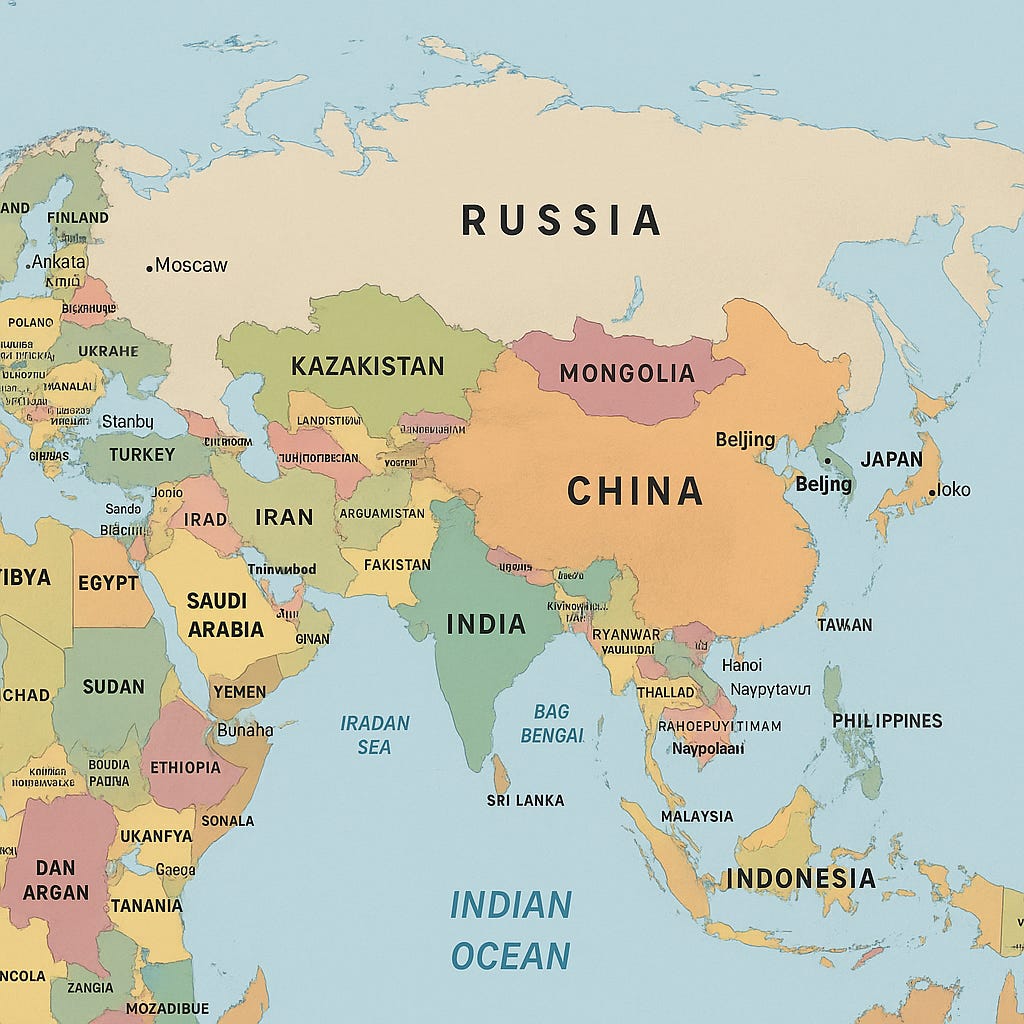Global South: Beware the $1 AI Trap
< Unbounded: 2 Mins Edgewise
Unbounded: 2 Minutes Edgewise delivers sharp, fast takes on current events, fresh revelations, and just cool things. Provocative or hopeful or fiery — it will always be brief, always grounded, and always unbounded.
OpenAI struck what it calls a “first-of-its-kind partnership” with the U.S. Government: ChatGPT Enterprise, for one dollar. OpenAI bought the labour of the US federal workforce for a buck to“help shape how AI is used.” Three million federal employees, many of whom regularly access and process sensitive citizen information.
They claim it will make services “faster, easier, more reliable.” Let’s test that.
My Prompt: “Draw a map of Asia with countries and capitals.”
ChatGPT 5.0: ⬇︎ ⬇︎ ⬇︎ ⬇︎ (output generated on 12 Aug 2025)
Notice the crazy output: missing letters, misspelled countries. Even some invented ones: like Ukanfya and Naypolaai. Beijing inside North Korea and Hanoi on the Chinese island of Hainan. And lots of gibberish.
Are these the “PhD-level abilities” Sam proudly boasted?
Funny? Sure.
Harmless? Absolutely not.
Using AI to manage, process or respond to queries about public records poses serious risks to accuracy and integrity. Errors, hallucinations, biases – all have legal and policy implications. Errors matter. Often they don’t just disappear, but ripple through systems, laws, and people’s lives.
Sensitive data like tax records, health files, criminal justice info and much else risks flowing through this model as federal workers try easy short-cuts “to help shape how AI is used.”
And Danger For The Rest^ of Us
Irrational exuberance, rather than military coercion, risks compelling other governments to join. No political leaders wants to be accused of falling behind, right?
A word of caution: this is how AI technocolonialism spreads:
Big tech rolls in, offers tools for little or no cost.
Policymakers can’t (or won’t) push back.
Countries become dependent on systems built for someone else’s culture, laws, and history.






